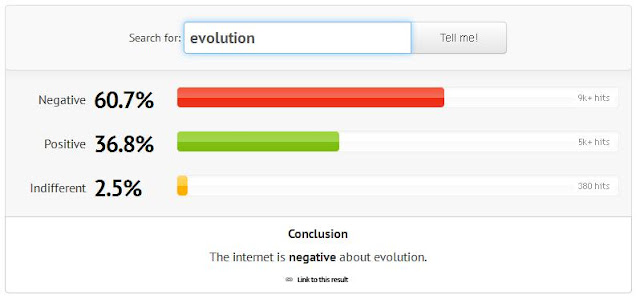The Book List
- Throne of the Crescent Moon by Saladin Ahmed
- Paranormality: Why We See What Isn't There by Professor Richard Wiseman
- Edge of the Universe: A Voyage to the Cosmic Horizon and Beyond by Paul Halpern
- The Signal and the Noise: Why So Many Predictions Fail -- But Some Don't by Nate Silver
- The Theoretical Minimum: What You Need to Know to Start Doing Physics by Leonard Susskind and George Hrabovsky
- War of the Worldviews: Where Science and Spirituality Meet -- and Do Not by Leonard Mlodinow and Deepak Chopra
- The Big Short: Inside the Doomsday Machine by Michael Lewis
- Save Our Science by Anissa Ramirez
- Existence by David Brin
- Red Planet Blues by Robert J. Sawyer
- Time Reborn: From the Crisis in Physics to the Future of the Universe by Lee Smolin
- Libriomancer by Jim C. Hines
- The Nerdist Way: How to Reach the Next Level (In Real Life) by Chris Hardwick
- Bright-Sided: How the Relentless Promotion of Positive Thinking Has Undermined America by Barbara Ehrenreich
- America Again: Re-discovering the Greatness We Never Weren't by Stephen Colbert
- Bones of the Old Ones by Howard Andrew Jones
- The Gospel of Falling Down: The Beauty of Failure, in an Age of Success by Mark Townsend
- The Unlikely Disciple: A Sinner's Semester at America's Holiest University by Kevin Roose
- Happy This Year!: The Secret to Getting Happy Once and For All by Will Bowen
- Eternal Life: A New Vision by Bishop John Shelby Spong
- Letter to a Christian Nation by Sam Harris
- Shadow Ops: Control Point by Myke Cole
- Being Logical: A Guide to Good Thinking by D.Q. McInerny
- Popper by Frederic Raphael
- Logic: A Brief Insight by Graham Priest
- Physics in Mind: A Quantum View of the Brain by Werner R. Loewenstein
- What We Talk About When We Talk About God by Rob Bell
- Writing Fantasy Heroes edited by Jason M. Waltz
- Man's Search For Meaning by Viktor Frankl
- The Age of Spiritual Machines: When Computers Exceed Human Intelligence by Ray Kurzweil
- Religion for Atheists by Alain de Botton
- The Autobiography of Benjamin Franklin by Benjamin Franklin
- Shadow Ops: Fortress Frontier by Myke Cole
- Redshirts by John Scalzi
- The Name of the Wind by Patrick Rothfuss
- Future Science: Essays from the Cutting Edge edited by Max Brockman
- The Companions by R.A. Salvatore
- The Godborn by Paul S. Kemp
- The Case for God by Karen Armstrong
- Letters to a Young Scientist by Edward O. Wilson
- What Money Can't Buy: The Moral Limits of Markets by Michael Sandel
- Fortunately, the Milk by Neil Gaiman
- Brilliant Blunders: From Darwin to Einstein by Mario Livio
- The Better Angels of Our Nature: Why Violence Has Declined by Steven Pinker
- Civilization: The West and the Rest by Niall Ferguson
- Invent to Learn: Making, Tinkering, and Engineering in the Classroom by Sylvia Libow Martinez & Gary S. Stager
- Still Foolin' 'Em by Billy Crystal
- The Logical Leap: Induction in Physics by David Harriman and Leonard Peikoff
- Spook: Science Tackles the Afterlife by Mary Roach
- What's Next: Dispatches from the Future of Science edited by Max Brockman
- Star Wars: Scoundrels by Timothy Zahn
- Codex Born by Jim Hines
- Meditations on Mystery: Science, Paradox, and Contemplative Spirituality by George W. Wolfe
- Wise Man's Fear by Patrick Rothfuss
Format:
- Audiobooks: 22
- Kindle: 18
- Kindle Singles (mini-books/solo essays): 1
- Kindle Lending Library: 5
- Dead tree books: 14
Subjects:
- Total Fiction: 15
- Science Fiction: 4
- Fantasy: 11
- Urban/Modern Fantasy: 4
- Traditional Fantasy: 4
- Sword & Sorcery: 2
- Young Adult: 1
- Steampunk: 0
- Non-Fiction: 39
- Science: 17
- Physics: 9
- Psychology: 8
- Biology: 5
- Technology: 4
- Math/Statistics: 3
- Religion: 11
- History: 5
- Politics: 4
- Education: 2
- Economics: 4
- Business: 2
- Philosophy: 10
- Humor: 4
- Writing: 1
These numbers don't quite match up, because some books cover multiple areas, and so I've included them in all relevant categories. So, for example, a book on the psychological foundations of religious belief (of which I read a few this year) would fall in both Psychology and Religion categories.
The History
And for anyone who is interested in looking into the past to see some of my previous book lists...
Prior to 2008, I didn't keep a precise record, so they aren't listed anywhere.


























